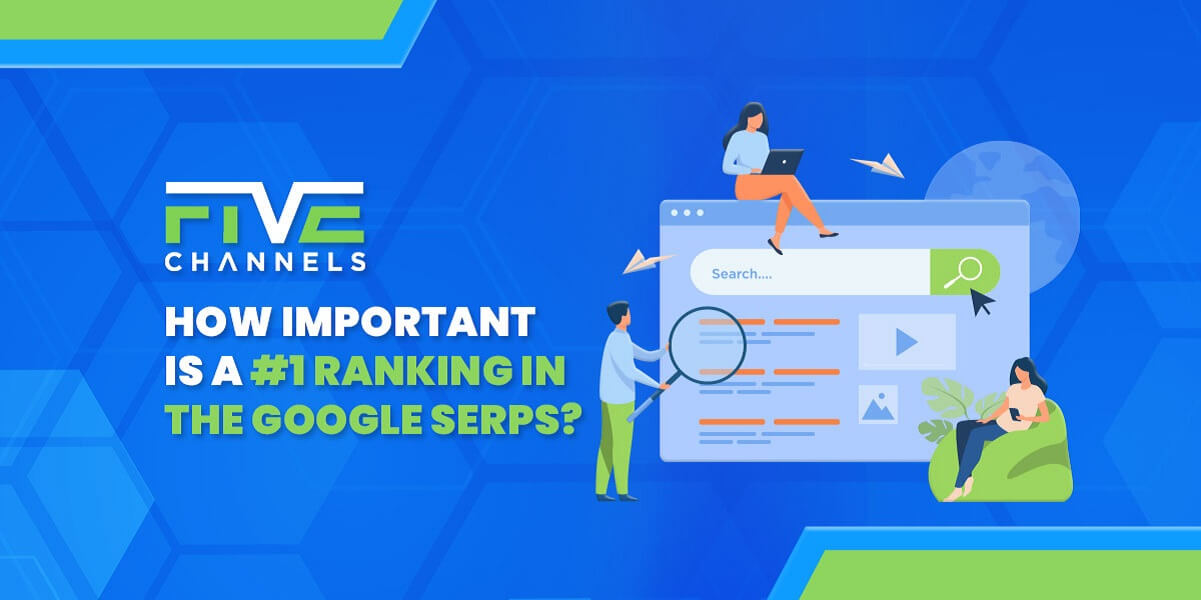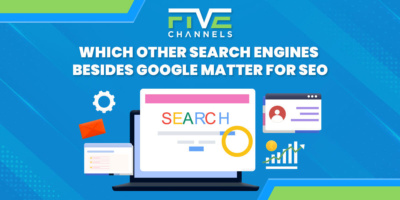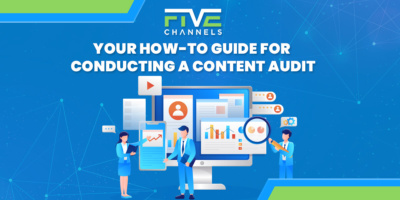Humans tend to forget who came second. The average person can name the all-time fastest 100m sprinter or greatest swimmer, but most of us don’t remember who came second in that 100m race or the swimmer that trailed by a few medals.
Our oversight is a form of salience bias. We focus on the most prominent or emotionally striking pieces of information. Worship is reserved for champions, successes, and the number one position.
Does SEO work the same way? Does ranking second on Google SERPS banish your brand into obscurity?
We argue that a podium position isn’t everything, but it’s important. In SEO, there are millions of podium positions. It is more important in SEO to be a finalist in many competitions than a winner in one.
What is Google SERP?
If you recently time-traveled into 2020, the term Google SERP seems comically alien. SERP isn’t just a strange sound, it also stands for “Search Engine Results Page,” which is a more familiar phrase.
Search Engine Results Pages are the list of 10 links you receive in response to a Google search. SERPs are ranked according to complex algorithms that review aspects of every web page known to Google.
With each keyword you type into the search bar, Google does its best to serve you with the right information.
If you’ve ever searched for something (especially in a hurry), you’ll know that most people never reach the second or third results page.

Why Does Google SERP Matter?
The average click-through-rate (CTR) for the first position in Google SERPs is almost 30%. That means the first ranked page is clicked on by 30% of people who search for related keywords.
By comparison, the second page receives about 16%, and the third 11%. By the 10th position, only 2.5% of searchers are clicking through.
From this data, it seems that SERP ranking is everything. However, there are many ways to access a webpage and many keywords to rank for.
The importance of Google’s SERP ranking varies. Great rankings will always benefit business, but it isn’t necessary, nor possible, for every business to rank well.
Social media prominence is another vital game all on its own. Review sites, backlinks, quality, and authority are all important factors too.
The Google search page has also changed over time. Ads look almost exactly like search results and dominate geographical listings too. Google has also added knowledge graphs, maps, top stories, and Twitter results.
The most crucial difference is that Google search results show almost no organic search results until you scroll down. This is especially true on a small smartphone screen.
Benefits of a High Ranking
Ranking high on Google SERPs might not be the entire game, but there are definitely benefits. Let’s run through the benefits of a great Google SERP position.
Branding and Reputation
Branding in the digital world is everything. Customers and clients will find your business online and judge your service’s quality on how you represent yourself. If they can’t find your business, they’ll definitely judge you.
While there are exceptions to a high profile, every business needs to be reputable. SERP rankings help you make sales, but they also increase authenticity.
Ranking on top is more challenging if your competitors are large. Both on and offline, dominating a smaller niche before tackling the rest is a smart plan.
Reduction in Marketing Costs
Inbound leads that originate from SEO optimization are also more cost-efficient. While investing in SEO optimization can cost, they pay off over time.
SEO optimizations can bring an influx of customers and clients to your site without paid advertising. Of course, more commonly searched keywords are harder to rank for.
Keywords that are difficult to rank highly in also take more SEO investment to see results.
How Do I Rank Higher?
Your search engine results ranking depends on Google’s algorithms. Much like how we try to present ourselves well on our CV’s or resumes, we can make our websites desirable too.
SEO or Search Engine Optimization is a collection of practices that help your site rank better. It’s a little like refining your CV and LinkedIn page to improve your visibility. It isn’t the only way to land a great job, but it improves your chances.
SEO also takes into account the quality of the content on the website. Ranking at the top spot on Google SERPs also means providing what people are searching for. If you’re content ranks at the number one spot for SEO, you’ll need to have an exhaustive guide.
Google’s algorithm is changing all the time. It’s impossible to keep up or worry about every little change. Google doesn’t want to rank sites that are optimized, Google wants to promote sites that users enjoy.
The best SEO strategy is great UX (or ‘User Experience’) in the long run. Here are a few solid tips to increase your ranking without sacrificing authenticity.
Backlinks
Backlinks could be the most valuable tool for better Google SERP rankings and are the foundation of Google’s algorithm
Although the algorithm is old, it is still used, at least partly. Backlinks are links that lead back to your site. If any other website or social network contains a link to your site, that’s a backlink.
This only counts if Google can crawl for it. So private messages or any other data that Google shouldn’t access won’t help your ranking. Backlinks are also ranked.
Copy-pasting your website’s link on other sites doesn’t help you. Backlinks should first be relevant. Google wants to promote links that actually lead to what they promise. If your site is linked on pages that don’t have anything to do with your business, backlinks are less effective.
The freshness of the link is also a factor to consider. The importance of recency depends on the type of content. For breaking news, backlinks are better new, as old links lead to old information.
This is why many SEO experts advise on producing evergreen content. That means that the relevance of the content doesn’t diminish because it’s a few weeks old.
It is always good practice to update your content regularly anyway.
Backlink ranking from authoritative sources is more effective. Backlinks from websites like newspapers, Wikipedia pages, or prominent businesses are stronger.
Authority
Other domains of SEO also value authority. The authority of your website extends beyond solid backlinks.
Google sometimes refers to this as topical authority. That means that websites that deal with a specific topic well will rank higher for related keywords. This factor trumps backlinks and certain other scores.
Websites focused on fishing techniques, and fishing courses will rank highest for how-to searches related to fishing. That’s why specialization or a niche is important for small businesses.
Trying to compete with every website in existence can be an impossible task, but authority isn’t that simple. Google has, what they dubbed, E-A-T guidelines (or Expertise, Authoritativeness, and Trustworthiness.)
Internal links (links to other posts on your site) also increase authority. Make sure your posts are well researched, especially if they discuss sensitive topics. Anything legal, medical, or newsworthy should be clear and not misleading.
Search Intent
The intent of the searcher plays a significant role in Google SERP rankings. For example, someone searching with the term “buy” in their query is different than “how to.” Those two searches intend to take different actions. The “four C’s” of intent are:
– Content Style
– Content Type
– Content Format
– Content Angle
In each of these categories, Google’s algorithms will assess your content for ranking.
Content style is all about the way you create your content. Unboxing videos are different from Vlogs, for example. Some searches are geared towards a particular style of content. Try to think about styles that work for you and your audience.
Content-type dictates the form. An unboxing could be a video, written review, or social post. Type distinguishes between them. Is your link a blog post, landing page, or shopping page?
Content format mainly breaks down different forms of informational content. Blog posts tend to fall into repeated formats like:
– Lists (e.g. “10 ways to…”)
– Tutorials
– News
– Opinions
Lastly, the angle of your content is also important. Are you addressing a specific type of audience? Is your content built for beginners or experts?
Page Speed
Besides improving the user experience, page speed is a vital consideration. The faster your page loads, the better it will perform in Google SERP rankings.
That’s because Google doesn’t want to promote sites that make users wait 10 seconds. This is especially important as the percentage of mobile searches is rising. More searches from mobiles mean less powerful internet connections.
In 2018, Google stated that all content should be able to display in less than three seconds. The first content should appear in about 1.3 seconds or less. They suggested that websites should not contain more than half a megabyte of data per page.
There are many ways to check this yourself using online tools. Slow website speeds could be due to several factors, including code, content, or website management. For example, if you use WordPress for your site, too many plugins can slow your website down.
Mobile Friendly
Speaking of mobile devices, having a mobile-friendly website is a great way to rank better. Recently a Google representative is claimed to have said that 65% of searches come from mobile devices.
Mobile-friendly sites are essential. You can measure this in your Google Search Console window. Being mobile-friendly is not only about website speed, but also user experience.
If the buttons on your site are hard to navigate on a small touchscreen, you may want to consider changes. Ensure that mobile users can see the font on your website without having to zoom in and scroll around.
Your website should tell that it is being accessed from a mobile device and adapt accordingly.
User Experience
The most important factor besides the content on your site is UX or user experience. Google has suggested a few UX tips in their starter guide.
Make sure your site is easy to read. Pick fonts and colors that help your text stand out without straining the eyes.
Organize your content with logic. Try to use categories and tags so that users can find your content without scrolling through months of posts.
Responsive design or design that responds to user inputs also helps users navigate. For example, buttons that change when they are selected or clicked on.
Avoid spraying your site with ads, primarily if they cover content or links on the site. If your users find your site annoying to navigate, they will use another.
Most of all, focus on the needs of your users. What are they looking for? How can you provide that content so that it is easy to access? How can you keep your users coming back for more?
Google SERPs in 2020
You don’t need to rank as the number one spot on Google SERPs to increase clicks and engagement. SEO optimization is all about raising awareness of your site and brand.
There are a growing number of ways to do that. As algorithms become more complex and social sites integrate with search engines, ranking grows in complexity. In doing so, for most businesses, the answer is to focus on high-quality products and services.
Some level of SEO optimization is essential. If you’ve never invested time in understanding how SEO works, you need a digital marketing review.
Owner and Chief Marketing Officer, Jason Hall, and his team specialize in creating brand awareness / traffic and lead generation / marketing funnel and conversion optimization, while utilizing the appropriate marketing channels available within your industry. With diverse clients throughout the world, Jason's team is well connected within many industries to assist with your marketing strategies. With no long term contracts and various levels of service, Jason's team will increase the quality of your online traffic, leads, and sales.
About the author...
Located in the heart of the Emerald Coast - Destin, FL, founder and Chief Marketing Officer, Jason Hall, and his team specialize in creating brand awareness / traffic and lead generation / marketing funnel and conversion optimization / and PR campaigns, while utilizing the appropriate marketing channels available within your industry.
With diverse clients throughout the world, Jason's team is well connected within many industries to assist with your marketing strategies. With no long term contracts and various levels of service, Jason's team will increase the quality of your online traffic, leads, and sales.









